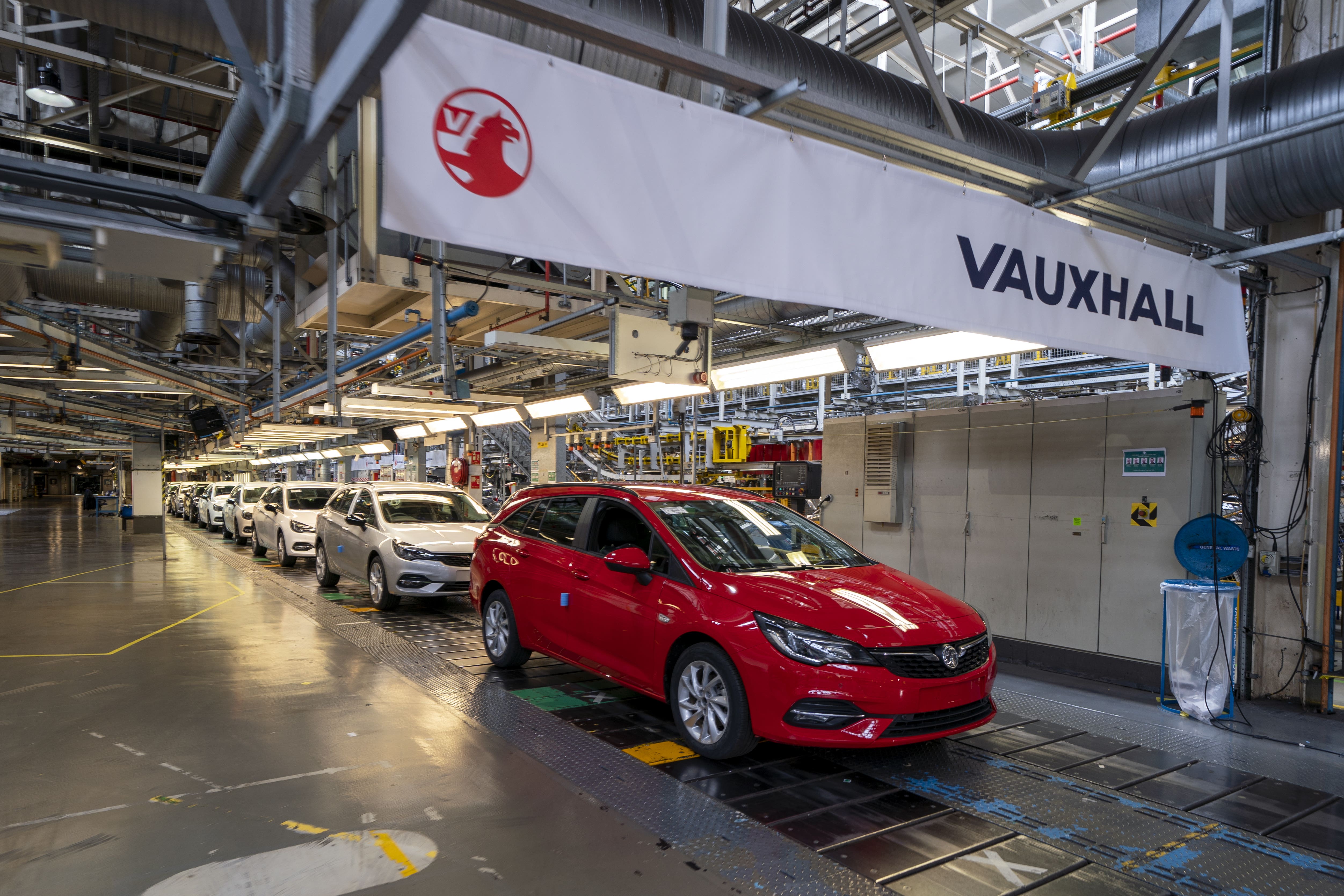We will lose more firms and jobs before the Brexit nightmare is over
How will a former car plant worker react to Suella Braverman suggesting they go out and pick fruit for the minimum wage, asks James Moore


To think there are people who thought that Brexit was finally “done” after Rishi Sunak negotiated the Windsor Framework.
Back from trade talks in Switzerland, business secretary Kemi Badenoch found herself meeting with bosses from Stellantis – one of the world’s five biggest carmakers with a strong 16-brand portfolio including Vauxhall, Fiat, Citroen, Alfa Romeo, Peugeot, and Jeep.
It is an important player in one of this country’s more successful industries (or at least it was), with electric vehicle plants in Ellesmere Port and Luton, both of which employ a lot of people in well-paid manufacturing jobs that are otherwise hard to come by.
A couple of years ago, it said all was fine and dandy with its British plants, but that’s changed. Since then, the world has been afflicted by a sharp rise in energy costs and the prices of raw materials have headed skywards. These things are apt to get finance directors poring over the spreadsheets.
Stellantis says it cannot meet national origin rules ushered in by the Brexit trade deal while still producing cars and vans economically. The rules mean it runs the risk of 10 per cent tariffs when it exports products to Europe, making them unsustainable.
The problem might have been averted if Britain had something resembling a coherent industrial policy, one that recognised the need for investment in expensive factories that produce key parts such as batteries. Other countries have woken up to this and, scenting the opportunity for jobs and growth, dived right in with their chequebooks. Laissez-faire doesn’t cut it in the brave new world of greener industry. Even the Americans understand that.
But building giga-factories takes time, even if you’re pushing hard, and time is fast running out. (Wait, weren’t all those whizzy new trade deals supposed to take the place of Britain’s position in the world’s largest free trading zone? Oops.)
The ambitious Badenoch now has a very big problem on her plate because it isn’t just the plants themselves that are threatened, but the livelihood of tens of thousands of workers in the supply industry. Troublingly, it has the feel of a “when it’s gone, it’s gone” situation.
How do you imagine someone turfed out of a car plant in Luton is going to react to Suella Braverman suggesting they go out and pick fruit for the minimum wage when there’s a mortgage to pay?
Thus there are now demands to renegotiate Brexit. Trouble is, renegotiation requires both sides to agree to sit down and talk and also requires compromise, which seems to be a dirty word when it comes to Britain and the EU.
During the Brexit referendum, it became fashionable to talk down business bosses who predicted it would lead to firms leaving Britain.
Since then, we’ve regularly heard Brexiteers saying “see, they’re still here after all”. Well, maybe not for long; Stellantis is deadly serious. Worse still, this may be the first of many of these situations as the reality of Boris Johnson’s oven-ready deal bites.
We’ve already got retailers up in arms about the costs imposed by extra checks and fees on produce coming in from the continent, and while the Competition & Markets Authority probe into food prices might get them to pipe down for a bit, therein lies another problem that simply isn’t going away.
While this is going on, Keir Starmer has been out and about banging the drum for his own renegotiation plans, while peddling unicorns such as the idea that he could make this all go away if Labour were running the show.
Keir & Co might be able to put a workable industrial policy together, which would be a nice idea. But if he succeeds in getting into No 10, he will be confronted with the same problems as Badenoch and Sunak: Brexit just won’t go away. It will never be “done”. It will always be there, producing a rolling series of crises made inevitable by the contradictions at the heart of the project.
In reality, Starmer isn’t being any more honest about this than the government. So these problems are here to stay. And they may well cost a lot of very good jobs before we’re out the other side and Britain’s political class decides it might just be time to indulge in a little honesty.






Join our commenting forum
Join thought-provoking conversations, follow other Independent readers and see their replies
Comments